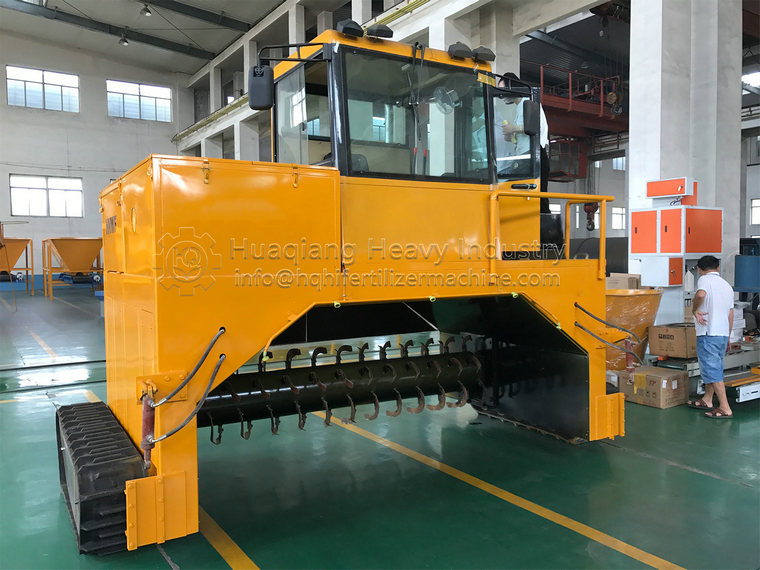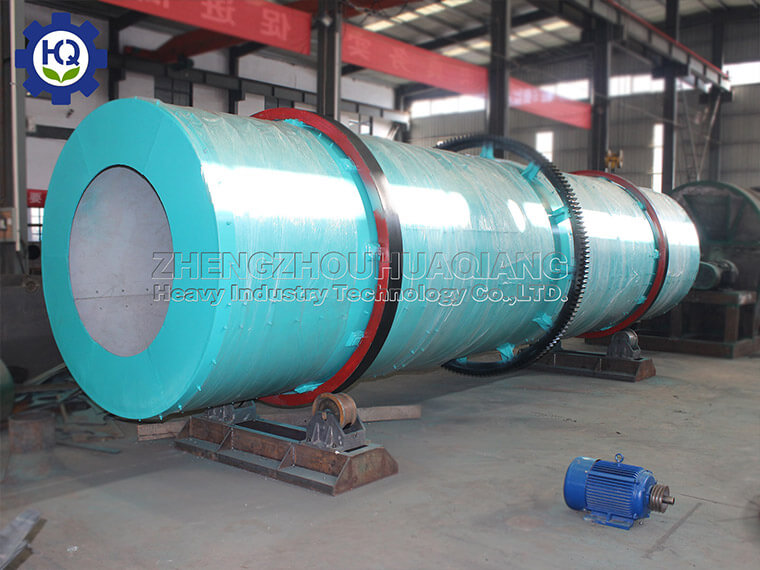Performance characteristics of windrow turning machine:
1. The composting equipment supporting organic fertilizer production line has less civil engineering and investment.
2. The diesel engine is used as the power source of the windrow turning machine, which saves the trouble of pulling the electric wire. It is convenient to change the venue.
3. Windrow turning machine adopts industrial rubber track with low noise and high friction, which can effectively avoid the slippage caused by excessive moisture or viscous material.
4. Using independent dual operating levers for walking, it can turn 360 degrees on the spot, eliminating the trouble of large steering wheel turning radius, and making the operation more convenient and simple.
5. The main shaft of the windrow turning machine is equipped with hydraulic lifting, which can adjust the pile turning resistance when there is too much material accumulation, and better protect the diesel engine, gearbox, etc.
6. The main transmission parts of the turning and polishing machine are driven by couplings, which can transmit greater torque and improve work efficiency.
7. Simple operation, convenient maintenance, high efficiency, stable operation, saving time and effort.
At present, the main types of dumpers in China are self-propelled dumpers and trough dumpers. The difference between them is that the self-propelled dumper works by walking with four tires. The trough dumper needs to build a fermentation tank and put the dumper frame on the tank to work.
The self-propelled tipping machine is used for the fermentation and tipping of organic wastes such as livestock manure, sludge garbage, filter sludge of sugar factory, residue cake and straw sawdust. It is widely used in the fermentation and moisture removal of sludge garbage factory, compound fertilizer factory, organic fertilizer factory, horticultural farm and Agaricus bisporus planting factory. It is suitable for aerobic fermentation with high efficiency, stable operation, durability and even turnover.


.jpg)
.jpg)

.jpg)

